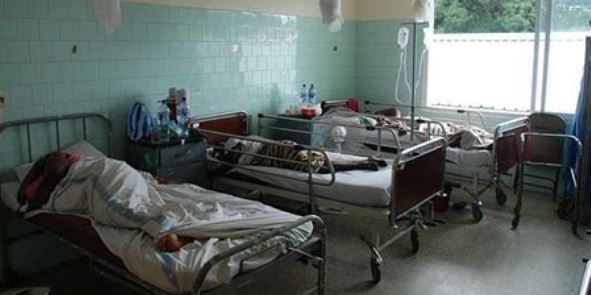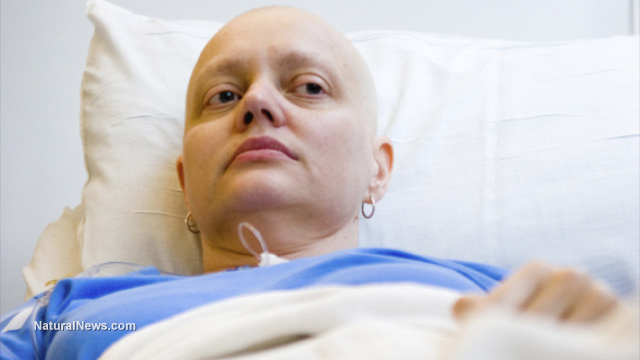What Everybody Ought To Know About Cancer Fraud
08/02/2016 / By cancerscams

Today we’ll focus on cancer fraud. Our main article is called “What Everybody Ought To Know About Cancer Fraud.”
(Article by Keith)
First, let us tell you what this article on cancer fraud is NOT about. We are not talking about bogus treatments, unproven claims and snake oil salespeople here.
Although this type of cancer fraud is common, there is another type of cancer fraud that most people don’t even know exists. That’s what we’ll focus on in this issue, as well as another form of cancer fraud that often targets clergy members and people who are very religious.
We’ll also give you some tips on creating good passwords to safeguard your Internet accounts.
Cancer fraud scammers play on your sympathies to steal your money.
You see it in the news. From celebrities like Victoria Gotti exaggerating her cancer to the teacher in Michigan outright lying about having the disease, cancer fraud is becoming a big way for thieves to con you out of your hard-earned money.
Cancer fraud scammers seem to be looking both to get money and to garner some time in the spotlight.
True victims of cancer are obviously angered, and those who donate their money are frustrated.
There are two big types of cancer fraud: healthy people claiming to be cancer victims and email cancer fraud scams. Since most people are not aware of the scope of the first type of cancer fraud, we’ll start there:
How this type of cancer fraud works
In many instances, people fake cancer, allowing friends and family to raise funds to support medical treatments that never happen. Communities rally around the thieves.
Reports have documented that cancer fraud thieves have raised as much as $40,000 and spent as little as 3 days in jail for their crimes!
Unfortunately, if you’re questioning the validity of a cancer victim’s claims, it’s difficult to ask a cancer victim to ‘prove it.’ After all, that seems quite heartless.
Additionally, the police are finding that it isn’t difficult for cancer fraud thieves to forge documentation that proves their claim.
Yet, it is important that you’re confident that your donations are going to a worthy cause.
Unfortunately, the number of cancer fraud thieves is growing fast. These scammers are usually very good at creating compelling stories and tugging on heartstrings.
What to do:
Instead of donating to individuals who may be real cancer victims or cancer fraud thieves, consider donating instead to a larger organization like the American Cancer Society. You can make the contribution in the friend or family member’s name; however, this will most likely not offset medical expenses for that person.
You may also be able to give to the hospital where the person is receiving cancer treatments. Every hospital is different, so call before you make a contribution. Some hospitals will permit a family member to create an account that others can contribute to; sometimes these accounts can be used to offset medical bills for individual cancer patients.
If you’ve already donated and have since discovered that you’ve been a victim of cancer fraud, contact your local police. Many of these cases are successfully prosecuted. Visit our charity fraud page for more information.
Nigerian fee cancer emails
In addition to the headline-making thieves, more and more people are receiving cancer fraud emails. These scams work similarly to the Nigerian fee scam, which has been around for quite awhile.
Thieves send you an email claiming to be dying of breast cancer (or occasionally other types of cancer). They claim they need your help.
They usually say they have inherited a lot of money from their husband (millions of dollars), and want to make sure it gets a good home since they have no children and are dying of the cancer.
So, they claim they have millions of dollars set aside for you if you’ll help them. Often, they use a religious angle and target clergy and other religious people, saying they want the money to go to a good church or be used to help people. (They use all kinds of phrases and terms to convince you that they share your faith.)
This cancer scam usually works in two ways. First, they try to get your bank account number. They claim they will deposit the money into your account and you will get to keep some of it and donate the rest.
Naturally, they really want your bank account number so they can steal your money and/or your identity.
Of course, you don’t want to give them your bank account number or any other personal information.
Second, they try to get you to pay fees, so they can steal money directly from you. The reasons for these fees vary and they are not important — but the fees continue to grow until you stop paying.
What can you do?
If you get a cancer fraud email, delete it. Do not respond.
Or you can also file a complaint with the FTC.
A personal note: Like many of you, we have recently lost a number of friends to cancer. We see so many scams every day; nonetheless, we find it especially appalling that scammers would use cancer to steal money from their victims.
Read more at: scambusters.org
Tagged Under: Cancer fraud, Internet Fraud
RECENT NEWS & ARTICLES
COPYRIGHT © 2017 CANCER SCAMS



















